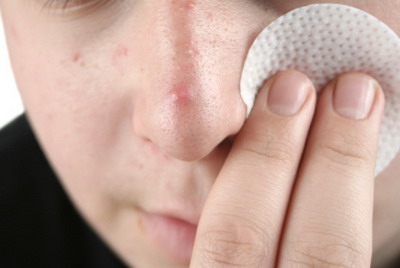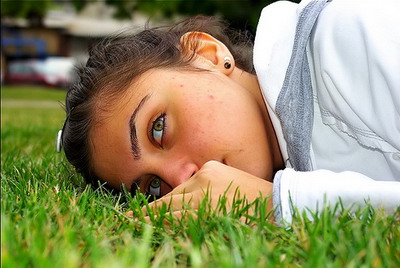Get Rid of Pimples
“Pimples” comes in at least three major varieties, and each kind of “pimple” requires its own treatment.
Acne, an inflamed bacterial infection in your pores, calls for good cleansing with a safe, all-natural anti-bacterial solution; severe acne may require a dermatologist’s prescription and a more complex course of treatment.
Skin sensitivities and allergies cause eczema and other mild skin irritations; many common household cleansers and even some of your favorite shampoos and conditioners contain mildly toxic chemicals that easily can inflame your skin.The more you “go green,” the more you reduce your risk of skin irritation.Watch Cyberbully (2015) Full Movie Online Streaming Online and Download
Severe blemishes erupt when your skin oils and perspiration have become toxic to your skin.Yes, that statement politely describes what happens to skin after protracted use of crystal meth-amphetamine or abuse of amphetamine prescription medications like Adderall.Commonly known as “speed bumps,” drug-induced skin irritation begins when dehydration and hyper-metabolism alter the pH of the body’s metabolic wastes—especially perspiration.Acidic perspiration irritates sensitive pores, making them more than usually susceptible to infection.Many amphetamine users pick-at or attempt to scrape away their blemishes, making the problem even worse.Of course, these “pimples” represent far more than a skin condition, and they require more than a dermatologist’s care.
How to get rid of acne
Well over 90% of adolescents experience acne.Nearly 35% of pregnant women suffer short-term bouts of serious acne.And many women in their late forties and early fifties have unexpected breakouts as they go through menopause.Naturally, researchers have seen the correspondence between periods of severe acne and developmental stages that occasion radical changes in androgens and estrogens; but they have yet to reconstruct the exact connection. Meanwhile, science has proven that acne results from dirt and bacteria infecting vulnerable pores.
To make common acne disappear, apply “topical” remedies—cleansers and conditioners that work directly on your skin; and consider “systemic” remedies, too.Although no one ever has proven any link between acne and diet, scientists have established clear-cut links between healthy foods and healthy complexions.When your acne grows more serious than usual, try foods and beverages rich in anti-oxidants—berries are best, citrus is excellent, and green tea delivers the goods.Many dermatologists also recommend increasing your intake of Vitamin D and folic acid, both of which contribute to healthy skin.
Most topical medications contain benzoyl peroxide; prescription and non-prescription formulae differ only in their concentrations of the anti-bacterial agent.Benzoyl peroxide aggressively fights bacteria, but it also dries skin, making it flaky and sensitive.Make sure you follow-up topical “oxy” treatments with toner or moisturizer.Also keep in mind that preliminary studies at the University of Maryland’s Center for Supplemental Medicine have shown essential lavender and chamomile are almost equally effective as harsh chemical formulae, and they nourish skin instead of depleting it.
In the last several years, dermatologists and physicists have collaborated in development of effective acne lights.In your mother’s era, doctors sometimes recommended use of sunlamps—the primitive version of the “fake bake.” Since then, more data about the harmful effects of UV rays has inspired development of better, safer technology. “Phototherapy” lights combine red and blue light at wavelengths proven to stimulate the body’s own anti-inflammatory and anti-bacterial activity, dramatically reducing acne.
How to get rid of eczema and other irritations
Dermatologists and allergists are documenting the correlation between environmental toxins and incidence of skin irritation, and most feel convinced common household products cause the majority of common eczema and other superficial skin rashes.Many people develop sensitivity to their laundry detergents, so that their clothes irritate their skin and trigger rashes.Bleach and ammonia, both toxic at higher concentrations, easily strip away skin’s two or three protective layers, exposing extremely sensitive young skin underneath.Window cleaners frequently contain exceptionally high concentrations of ammonia, and many bathroom cleansers contain both high concentrations of bleach and harsh abrasives, doubling the potential for skin irriation.
If you experience severe skin rashes, consult your physician or dermatologist for a comprehensive list of potentially harmful household products, and begin the process of substituting all-natural alternatives, most of which work better than the chemicals without all the irritation.
When “pimples” fail to respond
When “pimples” fail to respond to cleansing and anti-bacterial treatment, they probably are not pimples.Most facial blemishes are products of dirt, bacteria, and chemicals, as are most break-outs on your neck and back. Pimples elsewhere on your body suggest you have more than a dirt-and-bacteria problem.
If you see a “pimple” in your genital area, for example, it may be a sebaceous cyst—benign but ugly and scary.A sebaceous cyst develops when one of your oil glands becomes clogged.More seriously, a “pimple” in your genital area may be a wart, the result of infection with a human papilloma virus (HPV). Before you panic at the letters “HPV,” you must understand scientists have found more than forty strains of HPV, only one of which has any link to cervical cancer.Still more seriously, a genital “pimple” may signify an outbreak of herpes—the result of infection with the herpes simplex virus. When you see a genital “pimple,” be brave, do the right thing, and call your physician.
If you see a “pimple” anywhere around your mid-section, it suggests you have “shingles,” another viral infection from the herpes simplex family. Because the herpes simplex virus may remain dormant in your system for years, you generally cannot recreate a sequence of causes and effects in an outbreak of shingles.Most doctors believe, however, shingles are somehow stress related, and they are likely to erupt when protracted stress has run-down your immune system.Treatment is readily available. Call your doctor.


